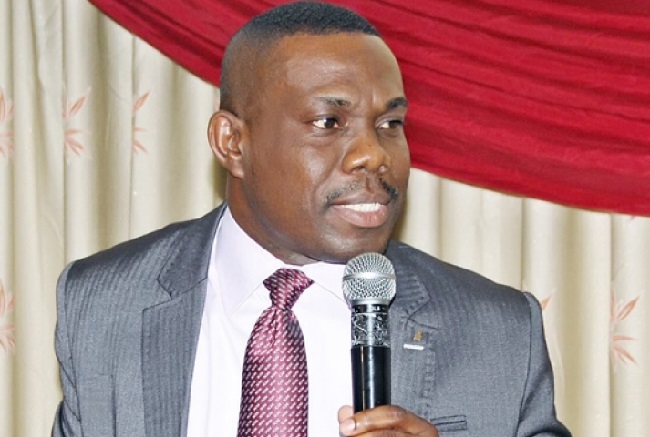
Creation of more districts problematic - Dr Oduro Osae
A local government expert, Dr Eric Oduro Osae, has said the creation of more districts, without the accompanying deepening of decentralisation, will create more developmental challenges for the country.
Advertisement
That, he said, was because currently there was lack of total decentralisation at the local level, with metropolitan, municipal and district assemblies (MMDAs) still hooked to the budget strings of the central government.
In view of that situation, he said, MMDAs lacked capacity in areas such as procurement and budgetary autonomy to execute projects to speed up development at the local level.
He opined that the failure to resolve that challenge would lead to more troubles if any government continued to create more MMDAs.
According to the Dean of Graduate Studies and Research at the Institute of Local Government Studies (ILGS), currently there was little or no decentralisation at the district and municipal assembly levels.
Public lecture
Dr Osae was speaking at a public lecture organised by the Audit Service of Ghana (ASG).
The chartered accountant and legal expert said there was the need to find a lasting solution to the current challenges in order not to compound them.
Dr Osae, who is also a board member of the Graphic Communications Group Limited (GCGL), explained that municipal and district assemblies were usually not held accountable by the people at the local level, partly because “our development has always been an up-to-bottom approach”.
“We live in a system where district and municipal assemblies are less accountable to the people, especially in areas of procurement and financial statement declarations.
“Hence governments must think of dealing with the problems, rather than compounding them with the creation of more districts,” he emphasised.
Public financial management
The seventh annual accountability lecture was on the theme: “Good governance and accountability through stakeholder participation in public financial management”.
The event brought together auditors, chartered accountants, tax and legal experts to find a common ground on how to deal with the issue of public financial management (PFM).
There were contributions by the Board Chairman of the GCGL, Prof. Kwame Boasiako Omane-Antwi; the Auditor-General, Mr Richard Q. Quartey; the acting Controller and Accountant-General, Mr Seidu Kotomah, and the General Manager of Mechanical Lloyd, Mr Joe Hyde Jnr.
They were unanimous in their opinions that there was the need for stronger stakeholder collaboration and engagement to strengthen Ghana’s PFM system.
Active participation
Participants were also given the opportunity to ask various questions that bothered them as far as PFM was concerned.
Some also raised concerns regarding the ability to ensure the active participation of citizens in the local governance system.
Prof. Omane-Antwi called for the introduction of citizenship education on how citizens could be involved actively in Ghana’s PFM system, adding that “stakeholder engagement is key to delivering critical PFM in Ghana”.
Mr Quartey also called for strict enforcement of the law, since those who were usually cited in the Auditor-General’s Report for having engaged in one wrongdoing or another were let off the hook.



